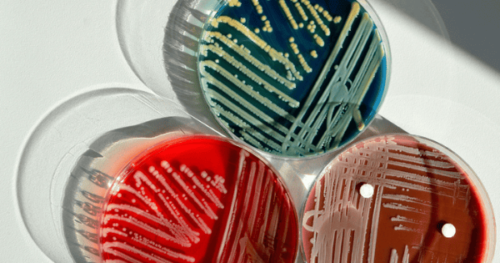In our quest for a healthier environment, bacterial filters play a pivotal role in ensuring the cleanliness of air and water. Whether in healthcare settings, industrial applications, or residential use, these filters are crucial for removing harmful bacteria and other contaminants. In this article, we’ll delve into what bacterial filters are, how they work, and why they are essential for maintaining clean air and water.
What are Bacterial Filters?
1. Basic Definition
Bacterial filters are specialized filtration devices designed to remove bacteria and other microorganisms from air and water. They work by trapping these particles, preventing them from passing through and contaminating the purified medium.
- Filtration Mechanism: Utilizes physical barriers, such as membranes with tiny pores, to capture bacteria and other contaminants.
- Applications: Commonly used in medical devices, water purification systems, air purifiers, and various industrial processes.
How Do Bacterial Filters Work?
2. Filtration Process
The effectiveness of bacterial filters lies in their ability to physically block contaminants. Here’s a step-by-step overview of how they work:
- Pre-Filtration: Larger particles are removed through pre-filters, which extend the life of the main bacterial filter.
- Main Filtration: Water or air passes through a fine membrane with pores small enough to trap bacteria and other microorganisms.
- Post-Filtration: Additional filters may be used to remove any remaining particles and ensure the highest purity level.
3. Types of Bacterial Filters
There are several types of bacterial filters, each designed for specific applications:
- Membrane Filters: Made from materials like polyethersulfone (PES) or polyvinylidene fluoride (PVDF), known for their high filtration efficiency.
- Depth Filters: Utilize a thick layer of filtration material to trap particles throughout the depth of the filter.
- Activated Carbon Filters: Often combined with other filtration methods to remove bacteria and absorb chemical contaminants.
Importance of Bacterial Filters
4. Ensuring Clean Air
Bacterial filters are essential in various air purification systems, particularly in environments where clean air is critical, such as hospitals and laboratories.
- Healthcare Settings: Protects patients and staff from airborne pathogens, reducing the risk of infections.
- Residential Use: Improves indoor air quality by removing bacteria, allergens, and other pollutants.
5. Purifying Water
In water treatment, bacterial filters play a vital role in providing safe, clean drinking water.
- Municipal Water Systems: Used to ensure the safety of public water supplies.
- Home Water Filters: Provide an additional layer of protection against waterborne bacteria and pathogens.
- Industrial Applications: Ensures that water used in manufacturing processes is free from contaminants that could affect product quality.
Applications of Bacterial Filters
6. Healthcare Industry
Bacterial filters are indispensable in healthcare settings, where they are used in:
- Medical Devices: Such as ventilators and respiratory equipment, to prevent the spread of infections.
- Sterile Environments: Operating rooms and cleanrooms rely on bacterial filters to maintain sterility.
7. Industrial Uses
Industries that require high levels of cleanliness, such as pharmaceuticals and food processing, use bacterial filters to ensure product safety and quality.
- Pharmaceutical Manufacturing: Ensures that products are free from bacterial contamination.
- Food and Beverage Industry: Maintains the purity of ingredients and final products.
8. Residential and Commercial Use
Bacterial filters are also used in everyday applications to improve the quality of air and water.
- Air Purifiers: Remove bacteria and other airborne contaminants, improving indoor air quality.
- Water Filtration Systems: Provide clean drinking water by removing bacteria and other harmful microorganisms.
Choosing the Right Bacterial Filter
9. Key Considerations
When selecting a bacterial filter, consider the following factors:
- Filtration Efficiency: Ensure the filter can remove the specific contaminants present in your environment.
- Flow Rate: Choose a filter that can handle the required volume of air or water without compromising performance.
- Compatibility: Ensure the filter is compatible with your existing system or device.
10. Reliable Suppliers
Partnering with a trusted supplier like GVS ensures you receive high-quality bacterial filters designed to meet stringent standards.
- Quality Assurance: Products that meet international quality standards.
- Comprehensive Support: Technical support and guidance to help you select and maintain the right filter for your needs.
Conclusion
Bacterial filters are essential for maintaining clean air and water in various settings, from healthcare and industrial applications to residential use. Understanding how these filters work and their importance can help you make informed decisions to ensure a healthier environment. Partnering with reliable suppliers like GVS ensures you get the best products and support for your filtration needs. Invest in high-quality bacterial filters to safeguard your health and improve your quality of life.



